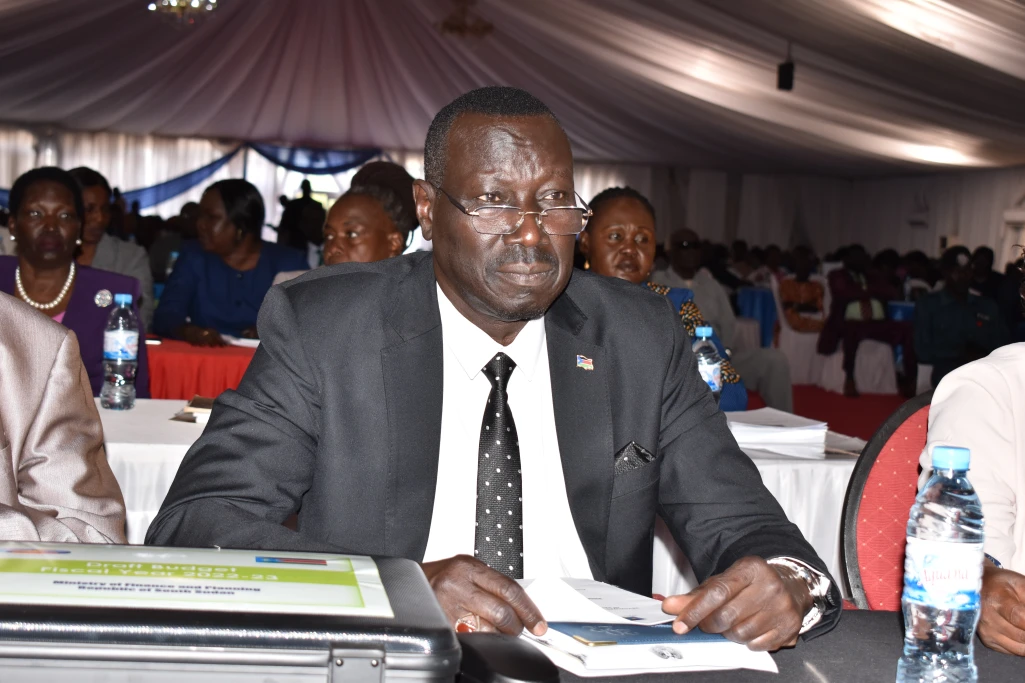
The Minister of Finance and Planning presented more than 1 trillion South Sudanese Pounds draft national budget for the fiscal year 2022/2023 to the transitional national legislature on Wednesday.
In May, the Council of Ministers passed a draft budget of more than 832.8 billion, but the Ministry of Finance and Planning raised the cap by 560 billion more pounds.
The spending estimate of 1.3 trillion South Sudanese Pounds, Agak Achuil Lual said, is needed “to consolidate peace and stabilize the economy to realize economic growth and sustainable development” across South Sudan.
The Public Administration, which entails salaries and operational costs, received SSP 117.3 billion, while the education sector – for the first time – received SSP 107.8 billion.
The Security Sector that often receives the lion share of the budget got SSP 75.3 billion, while Social and Humanitarian Affairs Sector will receive 6.1 billion.
“The FY 2022/2023 budget aims at addressing the endogenous factors which are within our control. Peace is a pre-requisite for tackling these endogenous factors and the FY 2022/2023 budget gives priority to the implementation of the revitalized peace agreement on the resolution of conflict in South Sudan,” Agak told legislators on Wednesday in Juba.
“The second priority area which is the complementary to the first is infrastructure in general and roads,” he added.
Agak stated that the budget estimate will be financed through borrowing and local revenues.
He called for cooperation between the executive and the legislature to ensure public resources are used to finance the budget.
“We need to commit ourselves to ensure public resources are used efficiently and effectively for the benefit of all South Sudanese,” he stated.
The budget briefcase was handed over to the Speaker of the Transitional National Legislative Assembly, Rt.Hon. Jemma Nunu Kumba today.
In May, the Council of Minister, upon approving the budget, said some of the money will be raised from the oil revenue, and 99 billion South Sudanese Pounds will be from the non-oil revenue or taxes.
The August House will break into 5 clusters; Governance, Economic, Service, Infrastructure, Gender, and Youth cluster to scrutinize the budget and report back within 21 days.
Their response to the proposed budget will be submitted to the chairperson of Specialized Committee on Finance and Economic Planning at the parliament.
“We need to expedite this work because the calendar of our fiscal budget is behind and we need to really expedite the process,” said Rt.Hon. Jemma Nunu Kumba, Speaker of the Transitional National Legislative Assembly.
The passing of the budget will take 45 days from the day of tabling.
South Sudan’s financial year runs from July 1 to June 30 each year. But this constitutional process has not been adhered to since 2014.
The FY2022/2023 budget has been prepared in a challenging environment of generalized rise in the global prices of goods and services.
The U.S dollars has appreciated against the South Sudanese Pounds with the black market selling at nearly 70,000 SSP to $100.